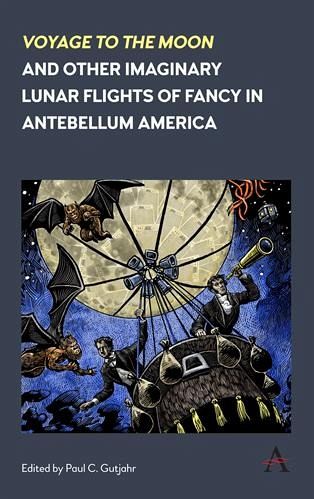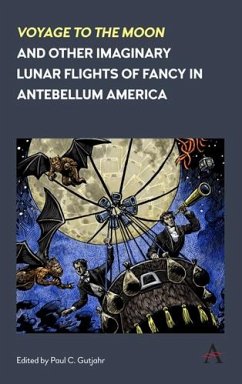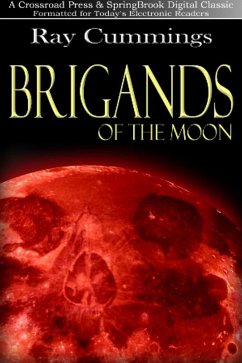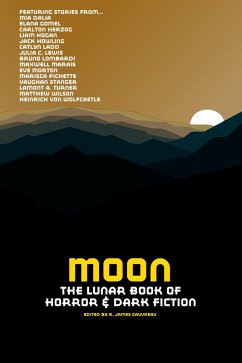
'Voyage to the Moon' and Other Imaginary Lunar Flights of Fancy in Antebellum America (eBook, ePUB)
Versandkostenfrei!
Sofort per Download lieferbar
59,95 €
inkl. MwSt.
Weitere Ausgaben:

PAYBACK Punkte
30 °P sammeln!
'Voyage to the Moon' And Other Imaginary Lunar Flights of Fancy in Antebellum America gathers together four moon voyage stories published by Americans prior to the Civil War. Included in this scholarly critical edition are the works of University of Virginia professor George Tucker, literary magazine author and editor Edgar Allan Poe, newspaper editor Richard Adams Locke, and scientist and medical educator John Leonard Riddell. Along with a general introduction to the collection as a whole, each story has its own introductory material along with explanatory footnotes and appendixes to identify...
'Voyage to the Moon' And Other Imaginary Lunar Flights of Fancy in Antebellum America gathers together four moon voyage stories published by Americans prior to the Civil War. Included in this scholarly critical edition are the works of University of Virginia professor George Tucker, literary magazine author and editor Edgar Allan Poe, newspaper editor Richard Adams Locke, and scientist and medical educator John Leonard Riddell. Along with a general introduction to the collection as a whole, each story has its own introductory material along with explanatory footnotes and appendixes to identify the key points of its textual and cultural history.
The four moon tales found in 'Voyage to the Moon' And Other Imaginary Lunar Flights of Fancy in Antebellum America are remarkable for the ways in which they capture a wide diversity of both literary agendas and printed material. These stories originally appeared in genres ranging from the traditional novel and the literary periodical short story to a series of newspaper articles and a scientific pamphlet. The social critiques of Tucker and Poe, the manipulative power of startling scientific revelations demonstrated in Locke's work and the more measured scientific discussions found in Riddell all bear witness to the power of print and science in the antebellum period.
The four moon tales found in 'Voyage to the Moon' And Other Imaginary Lunar Flights of Fancy in Antebellum America are remarkable for the ways in which they capture a wide diversity of both literary agendas and printed material. These stories originally appeared in genres ranging from the traditional novel and the literary periodical short story to a series of newspaper articles and a scientific pamphlet. The social critiques of Tucker and Poe, the manipulative power of startling scientific revelations demonstrated in Locke's work and the more measured scientific discussions found in Riddell all bear witness to the power of print and science in the antebellum period.
Dieser Download kann aus rechtlichen Gründen nur mit Rechnungsadresse in A, D ausgeliefert werden.












